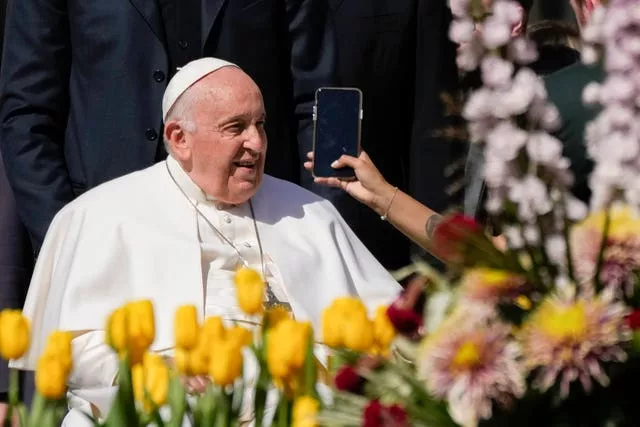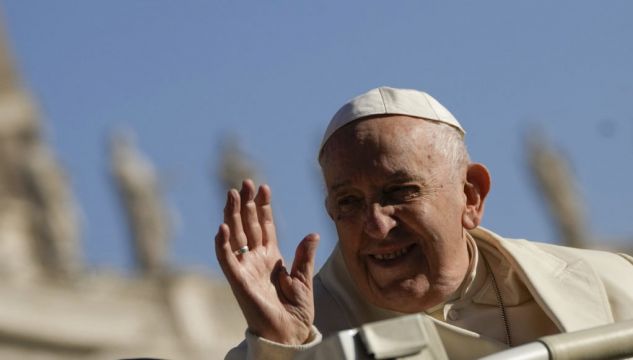Pope Francis has urged world leaders to use reason, not force of arms, to resolve their differences, evoking memories of the 1960s Cold War between Washington and Moscow.
At his weekly audience in St Peter’s Square, Francis noted that Tuesday marked the 60th anniversary of the issuance of a Cold War-era encyclical by Pope John XXIII.
The “Pacem in Terris” encyclical, intended for both the Catholic Church and the world at large, was issued several months after the Cuban missile crisis, which had fuelled fears of nuclear war between the United States and the then-Soviet Union.

Francis recalled the world then as “full of tensions between two opposing blocs in the so-called Cold War”, and said his predecessor’s message, which encouraged peace efforts, “is very current today”.
The encyclical “opened horizons in which you could speak of peace, construct peace”, Francis told thousands of faithful gathered in the square.
He called the document issued on April 11 1963 “a real blessing, like a serene break in the midst of dark clouds”.
He cited a passage from the encyclical that reads: “Relations between political communities, like those between individual human beings, should be regulated not by resorting to the force of arms, but by the light of reason, that is, in truth, justice and operative solidarity.”

Francis then urged “the faithful and men and women of good will to read” the 60-year-old document.
“I pray that the heads of nations let themselves be inspired (by the encyclical) in their plans and decisions,” Francis said.
He did not name any national leaders, nor did he cite any current geopolitical tensions, such as between America and Russia over Ukraine, or the US and China over Taiwan.
But as has done repeatedly in public remarks since Russia invaded Ukraine in February 2022, Francis referred to the war, saying: “Let’s pray for all those who are suffering in Ukraine.”







